Filter by
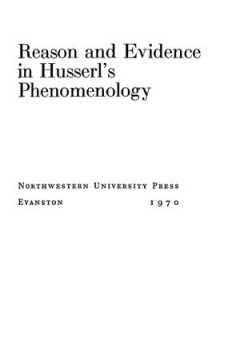
Reason and Evidence in Husserl's Phenomenology
In Reason and Evidence in Husserl’s Phenomenology, David Michael Kleinberg-Levin examines Husserl’s concept of necessary, a priori, and absolutely certain indubitable evidence, which he terms apodictic, and his related concept of complete evidence, which he terms adequate. To do so it explicates some of the more general relevant features of phenomenology as a whole.
- Edition
- -
- ISBN/ISSN
- 9780810138513
- Collation
- -
- Series Title
- -
- Call Number
- -
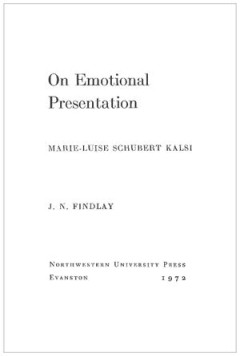
On Emotional Presentation
First published in German in 1917, On Emotional Presentation investigates the interrelation of emotions, values, and obligation. Alexius Meinong presents a realist theory of values in which values are given in and through emotion but are also ontologically independent of emotion or any subjective attitude. Meinong’s first discusses the concept of “intellectual presentation” (psychic exper…
- Edition
- -
- ISBN/ISSN
- 9780810139701
- Collation
- -
- Series Title
- -
- Call Number
- -
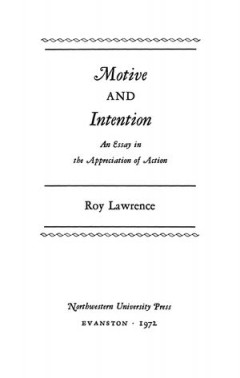
Motive and Intention
Motive and Intention is a critique of certain conceptual foundations of the description and judgment of human action. Drawing on sources such as narrative history, Roy Lawrence analyzes examples of such assessments and provides and independent base for appraising familiar and tenacious theoretical presumptions. In so doing he illuminates many persistent issues of common interest in the social s…
- Edition
- -
- ISBN/ISSN
- 9780810139589
- Collation
- -
- Series Title
- -
- Call Number
- -
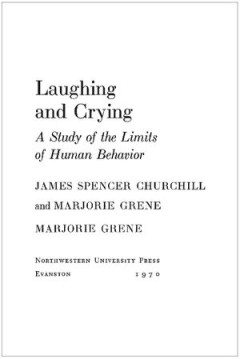
Laughing And Crying
First published in German in 1940 and widely recognized as a classic of philosophical anthropology, Laughing and Crying considers this significant pair of types of expressive behavior, considering them both in themselves and in their relation to the fundamental nature of humanity.
- Edition
- -
- ISBN/ISSN
- 9780810139725
- Collation
- -
- Series Title
- -
- Call Number
- -
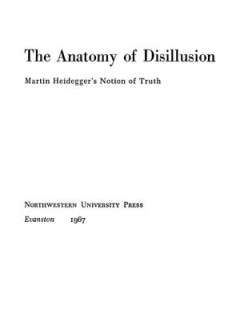
The Anatomy Of Disillusion
The Anatomy of Disillusion is an introduction to Heidegger’s phenomenology that focuses on Heidegger’s notion of truth. Unlike many of his contemporaries, W.B. Macomber presents Heidegger as a systematic thinker, whose phenomenology is inextricably bound up with his ontology and epistemology.
- Edition
- -
- ISBN/ISSN
- 9780810138551
- Collation
- -
- Series Title
- -
- Call Number
- -
 Computer Science, Information & General Works
Computer Science, Information & General Works  Philosophy & Psychology
Philosophy & Psychology  Religion
Religion  Social Sciences
Social Sciences  Language
Language  Pure Science
Pure Science  Applied Sciences
Applied Sciences  Art & Recreation
Art & Recreation  Literature
Literature  History & Geography
History & Geography